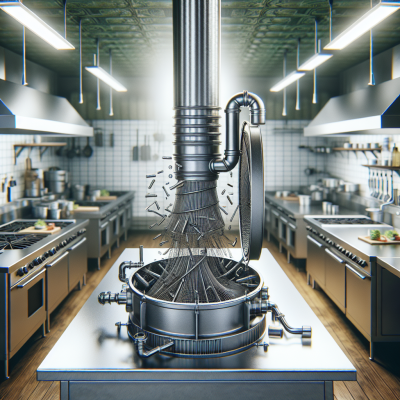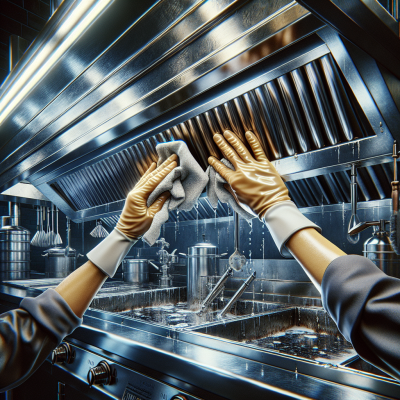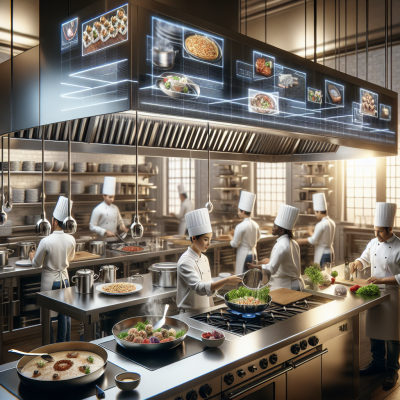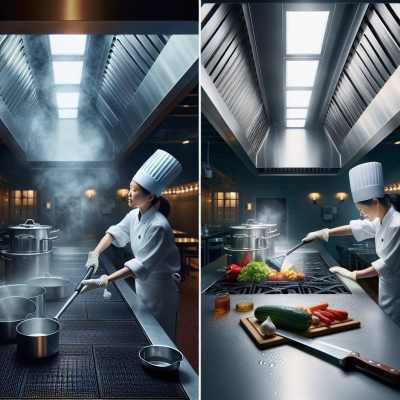Why Training Your Team is Crucial for Hood Cleaning
Running a commercial kitchen in the bustling city of Charlotte demands not only culinary expertise but also a commitment to safety and compliance. One of the often-overlooked aspects of kitchen maintenance is hood cleaning. It’s not just about aesthetics; it’s a matter of health and safety. Understanding the importance of training your staff on proper restaurant hood cleaning procedures can make all the difference in maintaining a safe and efficient kitchen.
The Importance of Exhaust Hood Cleaning
Your commercial kitchen’s exhaust system plays a vital role in maintaining air quality and ensuring that your kitchen remains safe from fire hazards. Over time, grease and grime can build up, leading to a significant risk of fires. Furthermore, a dirty hood can compromise air quality, affecting both employee health and customer experiences. Proper commercial kitchen hood cleaning not only ensures compliance with health regulations but also extends the lifespan of your equipment.
Key Aspects of Hood Cleaning Training
Training your team on exhaust hood cleaning involves several key areas:
- Recognizing Risks: Understand the hazards associated with grease buildup and how it can escalate into a dangerous situation.
- Proper Cleaning Techniques: Familiarize employees with the tools and cleaning agents used in hood cleaning, along with step-by-step procedures.
- Safety Protocols: Emphasize the importance of safety gear and precautions when cleaning hoods.
- Inspection and Maintenance: Train your team to regularly inspect and identify potential problems that might require more specialized intervention.
Benefits of a Well-Trained Staff
Investing in training your staff on proper hood cleaning procedures brings several benefits:
- Fire Safety: Reduces the risk of kitchen fires, protecting both employees and assets.
- Health Compliance: Ensures your kitchen meets health and safety standards, avoiding potential fines.
- Cost-Effectiveness: Regular maintenance can prevent costly repairs or replacements of exhaust systems.
- Efficiency: A clean hood improves air ventilation, reducing energy consumption and improving the kitchen environment.
Choosing the Right Training Program
When selecting a training program for restaurant hood cleaning, consider the following factors:
- Comprehensive Curriculum: Ensure the program covers all crucial aspects of hood cleaning, from basic techniques to advanced safety measures.
- Hands-On Training: Opt for a program that offers practical, hands-on experiences alongside theoretical learning.
- Certification: Accreditation by relevant authorities can add credibility to your training program, benefiting your business’s reputation.
- Flexible Scheduling: The program should accommodate the varying schedules of your staff without disrupting kitchen operations.
Implementing Regular Training Sessions
Knowledge retention improves with regular practice. Therefore, organize periodic training sessions to refresh your team’s knowledge and keep them updated with the latest in hood cleaning techniques. This will also reinforce the importance of maintaining a clean, safe kitchen environment.
Hiring Professional Hood Cleaning Services
For large-scale operations or particularly tough cleaning jobs, consider hiring a professional service in Charlotte to assist with commercial kitchen hood cleaning. This can supplement your staff’s efforts and ensure the highest cleaning standards are met.
Conclusion
Training your team on the essential knowledge and techniques for effective hood cleaning is paramount for maintaining kitchen safety and efficiency. Investing time and resources into proper employee training yields long-term benefits, safeguarding your business, staff, and patrons. If you need expert assistance or information, consider visiting Charlotte for comprehensive solutions in restaurant hood cleaning.










